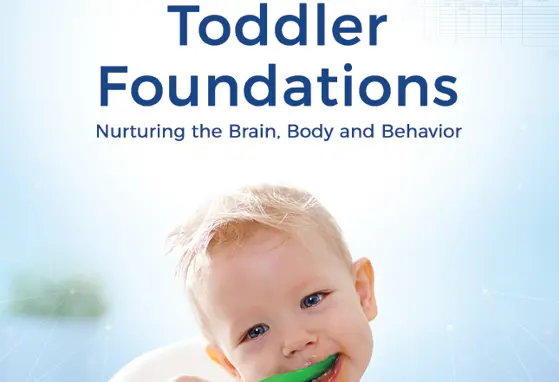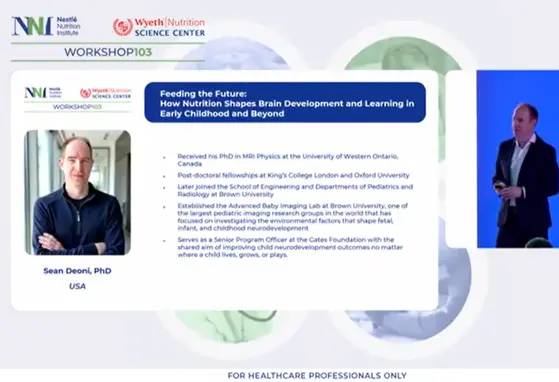Ryan Carvalho, MD - The Fats of life in early childhood brain development

Today’s lecture will describe an overview of brain development and physiological processes, such as structural and functional connectivity. We will then discuss the importance of nutrition and focus on some of the nutrients that have been shown to play a role during critical and sensitive periods of brain development. Finally, we will summarize the evidence that links structural neurodevelopment to functional outcomes like cognition and learning.
Over the last few decades, epidemiological, clinical, and interventional studies have taught us that the developmental origins of health and disease often begin very early in life. We have also learned that growth and development is heterogeneous across time. While social, emotional, and cognitive development continues through adulthood, a significant amount of the brain’s structure and capacity is shaped early in life before the age of 3 years.
Among the factors that influence early brain development is nutrition, which plays an important role during fetal development and throughout postnatal life. Through decades of epidemiological and outcome research, we know that different nutrients have specific roles in brain development during different stages of structural and functional development. While the role of some of these nutrients like polyunsaturated fatty acids (PUFAs), docosahexaenoic acid (DHA), and iron are well understood, other nutrients like lutein , choline, and phospholipids are less well known.
If you liked this post you may also like


Feeding the Future: How Nutrition Shapes Brain Development & Learning in Early Childhood & Beyond

Mindful Nutrition: The Interplay between Microbiome and Cognitive Development

Nourishing Healthy Brain Growth and Development in Young Children